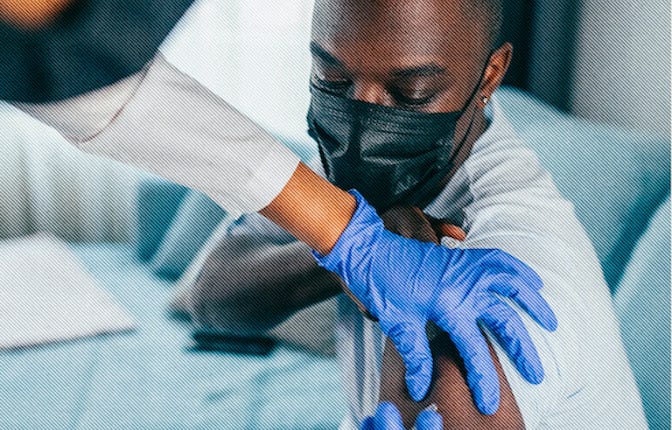Actually, you might not need another booster
New studies suggest that the vaccines may last longer than we originally thought.

Every COVID mutation has prompted new waves of anxiety about when we should get our next boosters. Omicron has been particularly scary because messaging about whether the current boosters will protect us has been so confusing. But health experts have been saying for months that a variant-specific booster probably isn’t necessary, and now new studies suggest that the boosters we already have may protect us for longer than we thought.
If you’ve been paying attention to all the booster talk, you’ve probably heard how the antibodies created by vaccines wane after a couple of months. But we may not need to worry about the next booster at all because the latest research suggests that the antibodies created after a third shot are so diverse that they should be able to protect us against Omicron and even variants that are dramatically different from the original virus, according to the New York Times.
Scientists are learning that this diversity of antibodies gives our bodies various tools to protect us from infection. “If people are exposed to another variant like Omicron, they now got some extra ammunition to fight it,” Julie McElrath, a Seattle-based infectious disease physician and immunologist, told NYT.
Not only that, but other new studies are shedding light on the other ways the vaccines and boosters teach our bodies to respond to COVID. We’ve heard a lot about antibodies because experts say they’re easier to study than other parts of the immune system. Now that scientists have had some more time and resources to learn about coronavirus, what they’re seeing is that the boosters also help our bodies create T cells and B cells that help us fight the disease, according to NYT.
T cells, also called lymphocytes, are stem cells produced in the bone marrow that help the body fight very specific antigens in viruses, according to Harvard Medical School News. According to a new study, the T cells produced after the four vaccines available in the U.S. — Pfizer-BioNTech, Moderna, Johnson & Johnson and Novavax — are about 80 percent as powerful against Omicron as other variants. Since Omicron is radically different from the OG coronavirus, that makes scientists think that those T cells would mount a similarly powerful response against future variants, NYT reported.
That’s great news, because T cells have a long cellular memory, which means that they can remember how to fight a specific antigen for a significant period of time. In studies of the SARS coronavirus, some people who had been exposed to the virus maintained T cells for over 17 years, according to recent research.
We haven’t heard a lot of cultural conversation about T cells because the truth is that even scientists don’t understand them that well. “A lot of doctors and scientists are not completely clear what a T cell is,” Dan Barouch, a virologist in Boston, told NYT. But, Barouch explained, they may be a crucial — and somewhat overlooked — aspect of our immune systems. “T cells are probably more important than what many people have given them credit for,” Barouch told NYT.
The B cell is yet another kind of unsung infection-fighting hero that the vaccines help us make and they may help our bodies learn to recognize new variants and fight against them, according to new research. A recent study suggests that B cells (another kind of lymphocyte) are still maturing and learning how to fight new variants six months after vaccination.
All of this new research bodes well for our future wellness. People over 65 and those with compromised immune systems may need a fourth dose before others, but the government says that it won’t be recommending fourth doses for most people anytime soon. Phew. I don’t know about you, but I am exhausted from the effort of trying to strategize my vaccinations and deeply relieved that I may not need another jab for a while.